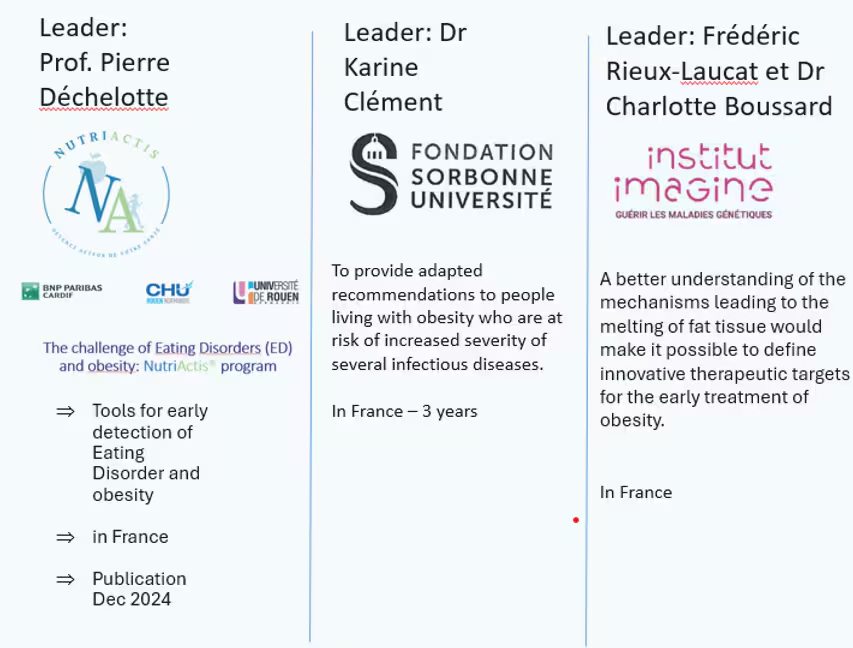The importance of supporting medical research on obesity
At the start of the 2025 school year, international research proves two new advances concerning obesity.
Obesity could be determined by a series of genetic clues.
While scientists had already established a link between genetic predispositions and obesity, a new international study* has identified the potential risks of obesity in childhood, in order to allow a preventive approach. While it has still not been proven that a particular gene is responsible for possible overweight (except in a few very specific cases), the study has made it possible to identify a series of genetic particularities in order to establish an individual score, and thus to target people who need special monitoring. This can concern weight and physical activity as well as possible heart or vascular diseases. The genetic data of more than 5 million individuals was dissected to identify these genetic markers, which concern the activity of hundreds of variants acting in concert to cause this obesity trend. Doctors are enthusiastic because this discovery makes it possible to predict risks from the age of five, and therefore to act as soon as possible to establish good eating habits. In addition, this new predictive technique would be twice as effective as simple BMI monitoring in identifying the risks of obesity or potential overweight.
*Nature Medicine study “Polygenic prediction of BMI and obesity throughout life and across ancestry”
In terms of diet, a study proves once again that ultra-processed foods play a harmful role, and that a diet without these products allows you to lose more weight.
Ultra-processed foods are once again in the crosshairs. These industrial products, often very fatty, salty and/or sweet, abound on supermarket shelves and seduce with their low price and the marketing that surrounds them. Numerous studies and publications have already identified how these products act on the brain and especially on weight. But a new study* has just proven that for the same calories, a diet without ultra-processed products, including those marketed as “healthy”, would allow you to lose twice as much weight as a diet including industrial products. Patients who followed the non-industrial diet lost more than twice as much fat mass as those who did not, and reported to the doctors in the study that their cravings for fatty or sugary foods were lower. One more reason to favor a natural diet on a daily basis, based on seasonal products and keep ultra-processed foods for special occasions!
*Nature Medicine study “Ultra-processed or minimally processed diets following healthy dietary guidelines on weight and cardiometabolic health: a randomized crossover trial”
BNP Paribas Cardif supports medical research as part of the obesity prevention program
